- Home
- Mike Lupica
Strike Zone
Strike Zone Read online
ALSO BY #1 BESTSELLER MIKE LUPICA
Travel Team
Heat
Miracle on 49th Street
Summer Ball
The Big Field
Million-Dollar Throw
The Batboy
Hero
The Underdogs
True Legend
QB 1
Fantasy League
Fast Break
Shoot-Out
Last Man Out
Lone Stars
No Slam Dunk
PHILOMEL BOOKS
An imprint of Penguin Random House LLC, New York
First published in the United States of America by Philomel,
an imprint of Penguin Random House LLC, 2019.
Copyright © 2019 by Mike Lupica
Penguin supports copyright. Copyright fuels creativity, encourages diverse voices, promotes free speech, and creates a vibrant culture. Thank you for buying an authorized edition of this book and for complying with copyright laws by not reproducing, scanning, or distributing any part of it in any form without permission. You are supporting writers and allowing Penguin to continue to publish books for every reader.
Philomel Books is a registered trademark of Penguin Random House LLC.
Visit us online at penguinrandomhouse.com
LIBRARY OF CONGRESS CATALOGING-IN-PUBLICATION DATA
Names: Lupica, Mike, author. Title: Strike zone / Mike Lupica. Description: New York : Philomel Books, 2019. | Summary: Twelve-year-old Nick García dreams of winning MVP of his summer baseball league, of finding a cure for his sister, of meeting his hero, Yankee pitcher Michael Arroyo, and of no longer living in fear of the government and ICE agents. Identifiers: LCCN 2019014207 | ISBN 9780525514886 (hardback) Subjects: | CYAC: Fiction. | Dominican Americans—Fiction. | Family life—New York (State)—New York—Fiction. | Baseball—Fiction. | Bronx (New York, N.Y.)—Fiction. | U.S. Immigration and Customs Enforcement—Fiction. | BISAC: JUVENILE FICTION / Sports & Recreation / General. | JUVENILE FICTION / Sports & Recreation / Baseball & Softball. | JUVENILE FICTION / Social Issues / Emigration & Immigration. Classification: LCC PZ7.L97914 St 2019 | DDC [Fic]—dc23
LC record available at https://lccn.loc.gov/2019014207
Ebook ISBN 9780525514893
This is a work of fiction. Names, characters, places, and incidents either are the product of the author’s imagination or are used fictitiously, and any resemblance to actual persons, living or dead, businesses, companies, events, or locales is entirely coincidental.
Version_1
This book is for Conor Gleason of the Bronx Defenders. A hero of the city of New York.
Contents
Also by #1 Bestseller Mike Lupica
Title Page
Copyright
Dedication
Chapter 1
Chapter 2
Chapter 3
Chapter 4
Chapter 5
Chapter 6
Chapter 7
Chapter 8
Chapter 9
Chapter 10
Chapter 11
Chapter 12
Chapter 13
Chapter 14
Chapter 15
Chapter 16
Chapter 17
Chapter 18
Chapter 19
Chapter 20
Chapter 21
Chapter 22
Chapter 23
Chapter 24
Chapter 25
Chapter 26
Chapter 27
Chapter 28
Chapter 29
Chapter 30
Chapter 31
Chapter 32
Chapter 33
Chapter 34
Chapter 35
Chapter 36
Chapter 37
Chapter 38
Chapter 39
Chapter 40
Chapter 41
Chapter 42
Three Months LaterChapter 43
Chapter 44
Chapter 45
Excerpt from Heat
About the Author
1
It figured that Nick García was playing in the Dream League.
He loved to dream as much as he loved throwing a baseball, something Nick knew in his heart—even if he’d never say it out loud—he could do as well as anybody his age in the South Bronx.
Nick’s coach, Tomás Viera, once told him he could throw even harder at the age of twelve than Nick’s hero, the great Yankees pitcher Michael Arroyo, had at the same age.
“Now, I can’t actually prove that,” Coach Viera said. “But I saw Michael play when he was in Little League. Heard the sound the ball made in the catcher’s glove. The sound you make is louder.”
Back when Michael Arroyo was growing up in the Bronx, he’d pitched on the north side of 161st Street, right where they’d built the new Yankee Stadium. At that time, it was the baseball fields of Macombs Dam Park. Once the new Stadium went up, a replacement Macombs Dam Park opened on the south side of 161st, in the footprint of the old Stadium. This was where Nick and his teammates on the Bronx Blazers now practiced and played, often with fans filing past on their way to Yankee games.
“I know about the fields where Michael Arroyo pitched,” Nick told his coach. “I’ve seen the old pictures online.”
“You seem to know just about everything about him,” Coach Viera said.
It was true. Nick dedicated a lot of time to finding out everything about Michael, including what happened during his childhood, when he came to America on a boat from Cuba with his father and brother. He’d read every news piece, biography, and article in existence, not to mention the ESPN documentary he’d seen about a hundred times. Nick even knew about the time Michael threw a ball from home plate to center field at the old Macombs Dam Park to stop a purse snatcher. It wasn’t just Michael’s fame that drew Nick’s attention. Michael represented everything that was possible for Nick to achieve. Seeing a brown-skinned kid from the South Bronx, just like him, make it onto the Yankee mound one day was enough to keep Nick fixed on his dream.
“Someday,” Nick told his coach, “I’m going to make it across that street and pitch for the Yankees.”
They were sitting on the grassy hill behind home plate, both having arrived early for tonight’s practice.
Coach smiled and pointed over to their left, where the Stadium loomed so big that sometimes Nick imagined it blocking out the sun, or swallowing up half the South Bronx; its shadow casting over the corner bodegas and fruit vendors on the street.
“It’s right over there,” Coach said, like it was simple. “Only a couple hundred yards.”
“Or a million miles,” said Nick.
“Michael Arroyo made it there from 158th and Gerard,” Coach Viera said. “You can make it from 164th and Grand Concourse.”
He grinned as he pointed to the word printed on the front of Nick’s blue practice T-shirt: “Dream.”
“It’ll take a lot more than that,” Nick said.
“Ah,” Coach said. “But I honestly believe the good Lord has blessed you with a right arm like Michael Arroyo’s left.”
“Michael is special.”
“So are you,” Tomás Viera was quick t
o say. “And this summer, it could be you standing on his pitcher’s mound.”
The Dream League was part of a larger organization, run by Major League Baseball, called RBI, which stood for “Reviving Baseball in Inner Cities.” This August they were holding a summer league tournament for teams from the Bronx. It was arranged in partnership with the Yankees that the MVP of the tournament would get to throw out the first pitch before a Yankee home game.
Nick had already been named the MVP of his RBI team in the spring. If he could somehow manage to do it again, he’d get to know, for one moment, what it was like to be in the middle of the most famous field in the world. Then it wouldn’t only be the people in the stands watching him, but perhaps Michael Arroyo, too.
A lot needed to go right for that to happen. Nick had to pitch his absolute best in the summer league, the same as he had in the spring, and the Blazers would have to win the tournament—he was almost sure of that. For the most part, in sports, the MVP came from the championship team.
But at least the chance was there, to make it from this field to the one across the street.
“Can I ask for a favor?” Nick said to his coach.
“Go for it.”
“Let’s not talk about the MVP award. I don’t want anybody to think I care about it more than winning the tournament.”
“Oh, I know that,” Coach said, with a wave of his hand. “And so do your teammates.”
“But can we please just not talk about it?” Nick pleaded, swiping a palm over his buzz cut.
“I won’t if you don’t want me to,” Coach Viera promised.
“Not gonna lie, it would be great to throw out that first pitch,” Nick said, punching a fist into his mitt. “But I’m not fixed on that.”
He was.
Nick wasn’t going to admit it to his coach, or his teammates, or even his parents. He was too embarrassed to tell any of them how much it would mean to throw that pitch. How much he wanted it.
But he did.
* * *
• • •
Coach Viera got up and made his way down the hill and across the sidewalk embedded with small plaques that told of great moments in Yankee history. By now, some of the other Blazers were starting to arrive for practice, which was scheduled for six o’clock sharp. With Coach Viera, you started on time and you ended on time.
Nick stayed where he was another minute, looking around at the Stadium to his left and the elevated subway tracks in the distance. He listened to the thrumming of the trains pulling into and out of the station at 161st Street, a sound that was as much a part of his life as the cheers echoing from inside Yankee Stadium.
Nick loved this field the way he loved his neighborhood. Even the racket from the cars on the Major Deegan Expressway, crawling along in both directions at rush hour.
“Sometimes I think,” his mother, Graciela, would say, “if you could move your bedroom to that field, you would.”
“And you’d still be telling me to keep it clean,” Nick would reply, sending the two of them into a laughing fit. Then she’d pull him in for a long hug.
There was no Yankee game tonight, as the team was in Toronto finishing out a long road trip against the Blue Jays. So it wouldn’t be one of those nights when Nick and his teammates could hear the game being played across the street. Usually, they could tell immediately if something good, or maybe even great, had just happened for the Yankees.
Nick had been inside Yankee Stadium a few times. His father tried to take him once a year. They usually sat in the bleachers, because those were the only tickets Victor García could afford. But even from there, in the most distant part of the ballpark, Nick thought the view of the game was beautiful. His father would always take pictures to remember the experience, but as much as Nick liked having those pictures, he didn’t need them. Long after the game was over, he could vividly recall the memory of everything he’d seen, both in his mind and in his heart.
Alone on the hill, about to make the walk down to the field, Nick closed his eyes. This time, he wasn’t envisioning those games from the bleacher seats.
No.
Instead, Nick García pictured himself going into his big windup, the one he’d copied from Michael Arroyo even though Nick was right-handed. The one he practiced alone in his bedroom in front of the full-length mirror, bringing his leg up high and rotating his right arm forward.
He put himself right there in the center of the Stadium, throwing that first pitch.
Nick knew that people who threw the ceremonial first pitch usually just lobbed the ball in to avoid the embarrassment of bouncing the ball in front of the plate or throwing it wildly over the catcher’s head.
But it would be different if he got the chance.
If he made it over there, he would bring the heat.
But only if he did make it over there. Only if he was still living in their apartment on Grand Concourse, just a few blocks from where Michael Arroyo grew up. Only if his family wasn’t deported first. Nick was an American citizen because he was born in America. So was his older sister, Amelia. His parents, however, were not. If they were sent back to the Dominican Republic, Nick and his sister would go with them.
Even for a kid with big dreams like Nick García, that would be a nightmare.
2
“Hey!”
The voice made Nick jump. But then, it didn’t take much to startle him. It could be something as ordinary as the sudden blare of a car horn, and Nick would still jolt.
But he relaxed as soon as he saw the faces of his two best friends looking down at him: Ben Kelly, his catcher on the Blazers, and Diego Gomez, the team’s center fielder.
“You shouldn’t sneak up on a guy like that,” Nick said.
“You shouldn’t be taking naps before practice,” said Ben, combing his hand through a thick mess of curly red hair.
“I wasn’t taking a nap,” Nick shot back. “I was just thinking.”
Diego shook his head, bringing his slender light-brown arms into a stretch behind his back. “That can get you into trouble.”
“Oh yeah? How would you know?” said Ben.
“Hey,” Diego said. “I think about stuff sometimes.”
“Oh yeah? Like what?” Nick said, joining in.
Diego scratched his head, as if confused. “Hang on, lemme think . . .”
“What about you?” Ben said to Nick. “What were you having deep thoughts about this time?”
“The usual,” Nick said.
Both Ben and Diego knew what the usual was. He’d told them everything about his family’s situation. And they were well aware of Nick’s fears.
“Just remember,” Ben said, “no matter what happens, we’ve got your back.”
“Even when you’re sneaking up on me from behind it?”
“We weren’t sneaking up on you!” Diego said earnestly. “We just thought you were trying to get some beauty sleep. Even though you’d probably have to sleep longer than that Rip Van Winkle dude for it to work on you.”
“When you are thinking,” Ben said to Diego, “does it ever occur to you that you might not be as funny as you think you are?”
“Never!”
Nick had known Ben and Diego since kindergarten, but they first became friends on the baseball field. Over the years, they had grown to be as close as brothers. So even though Nick wasn’t the type to share personal information, he knew he could trust them with anything. That’s how they knew Nick’s parents had come to the United States on tourist visas from the Dominican Republic when they were in their early twenties. Almost from the moment they arrived, Victor and Graciela García knew they wanted to make their home in America, and set out to secure jobs to establish themselves in a new country. However, this also meant that they were undocumented immigrants. Even though Nick’s parents both held steady jobs and paid taxes and Nick an
d his sister attended public schools in the Bronx, Victor and Graciela García weren’t American citizens.
Nick’s dad had always taught him that America was a country built and defined by immigrants coming from all corners of the globe. But now many of the people running the government, including the president himself, viewed immigrants as some kind of threat to America, no matter what country they came from. It was the reason why Nick and his family lived in fear the way they did.
“For the next couple of hours,” Ben said to Nick, “how about we all just worry about baseball? You down with that?”
His thick red curls always seemed to be flying off in every possible direction. They framed his freckled face, with skin as white as a brand-new baseball.
“I am so down with that,” Nick said. “Now help me up.”
He reached out with his right hand, and Ben pulled him to his feet. The three of them walked down the hill toward the field. And with Ben on one side and Diego on the other, Nick felt as safe for now as he possibly could. Sometimes it seemed as if baseball was the only thing with the power to do that—though he knew that the game he loved so much could never protect him from the government, especially if the government ever came for his family.
What was the expression?
“Safe at home”?
For the next two hours, he would let baseball make him feel that way. People in the league always talked about what great control Nick García had when he was pitching.
They had no idea.
Baseball was about the only thing in his life he could control.
Except he had none today.
Control.
While the rest of the Blazers went through infield and outfield drills, Nick and Ben went to the far field at Macombs, the one closest to the subway tracks, so that Nick could pitch off a mound. It was what the big-league pitchers called a “throw day,” to prepare for his first start in the tournament. Coach had told him to take it easy—not to throw too many pitches and, most importantly, not to throw as hard as he would in the Blazers’ opener.

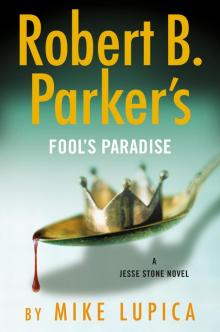 Fool's Paradise
Fool's Paradise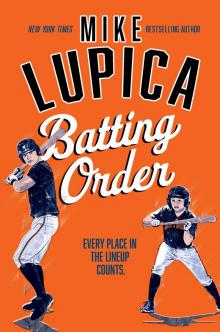 Batting Order
Batting Order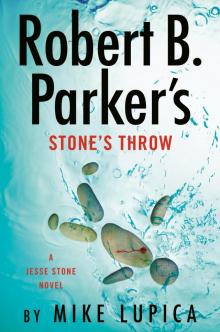 Stone's Throw
Stone's Throw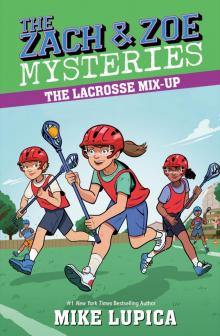 The Lacrosse Mix-Up
The Lacrosse Mix-Up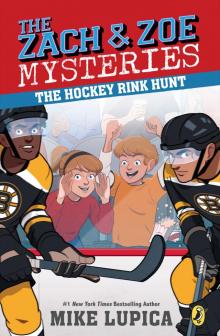 The Hockey Rink Hunt
The Hockey Rink Hunt Payback
Payback Triple Threat
Triple Threat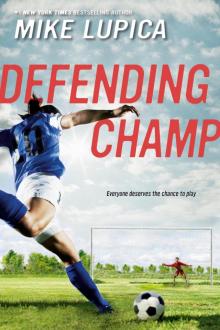 Defending Champ
Defending Champ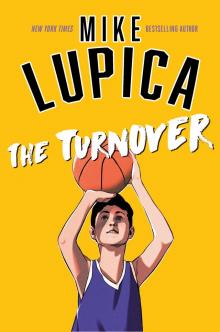 The Turnover
The Turnover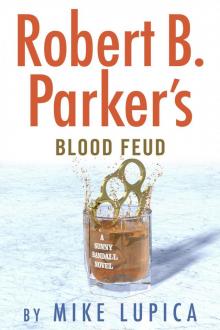 Robert B. Parker's Blood Feud
Robert B. Parker's Blood Feud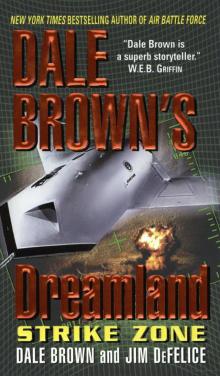 Strike Zone
Strike Zone Hero
Hero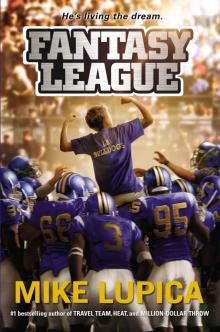 Fantasy League
Fantasy League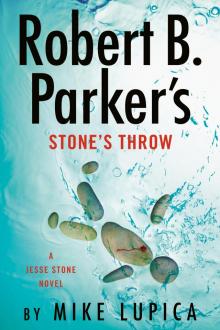 Robert B. Parker's Stone's Throw
Robert B. Parker's Stone's Throw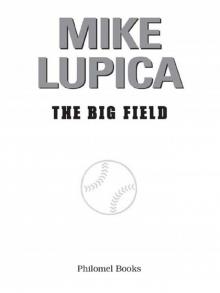 The Big Field
The Big Field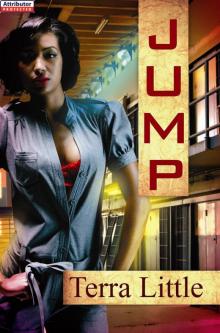 Jump
Jump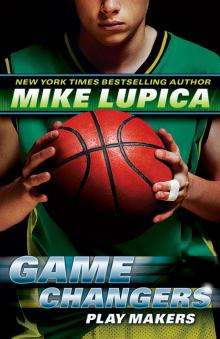 Play Makers
Play Makers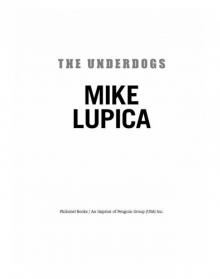 The Underdogs
The Underdogs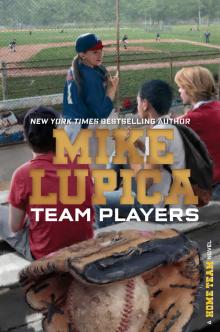 Team Players
Team Players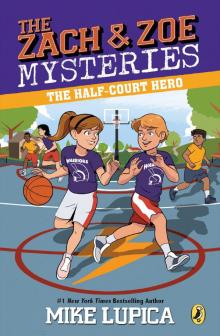 The Half-Court Hero
The Half-Court Hero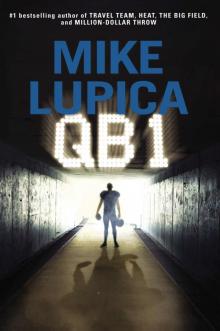 QB 1
QB 1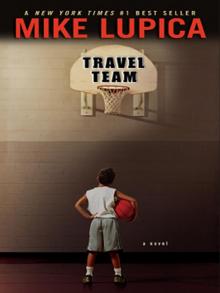 Travel Team
Travel Team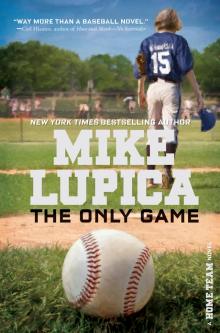 The Only Game
The Only Game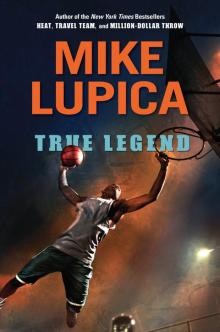 True Legend
True Legend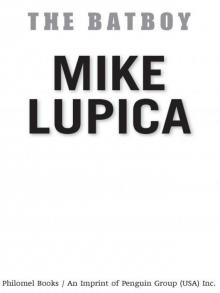 The Batboy
The Batboy Hot Hand
Hot Hand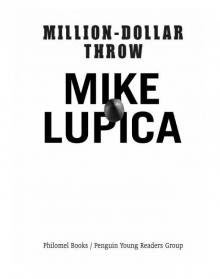 Million-Dollar Throw
Million-Dollar Throw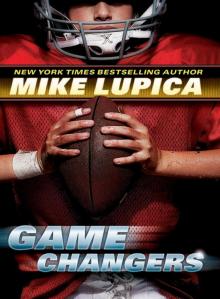 Game Changers
Game Changers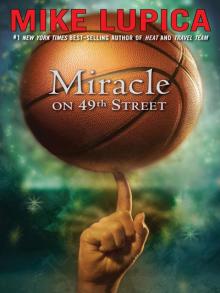 Miracle on 49th Street
Miracle on 49th Street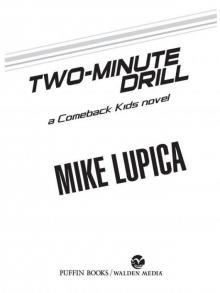 Two-Minute Drill
Two-Minute Drill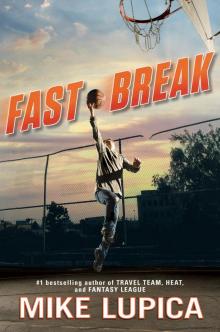 Fast Break
Fast Break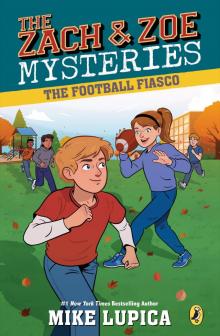 The Football Fiasco
The Football Fiasco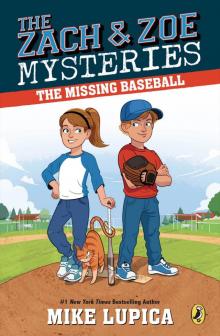 The Missing Baseball
The Missing Baseball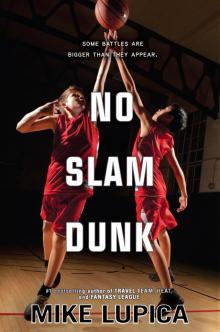 No Slam Dunk
No Slam Dunk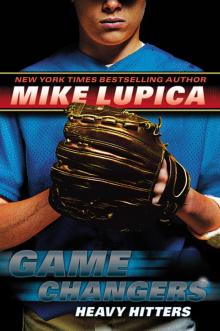 Heavy Hitters
Heavy Hitters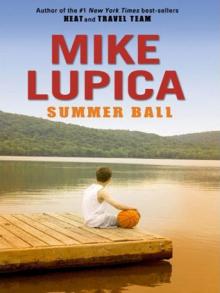 Summer Ball
Summer Ball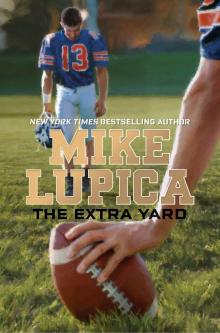 The Extra Yard
The Extra Yard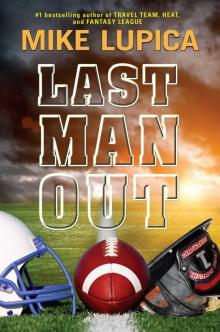 Last Man Out
Last Man Out